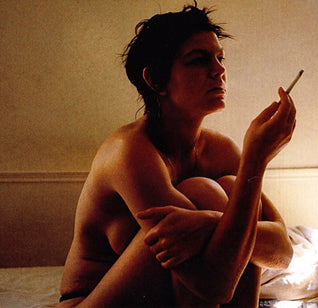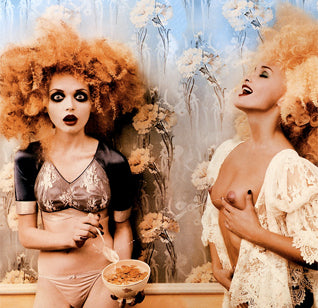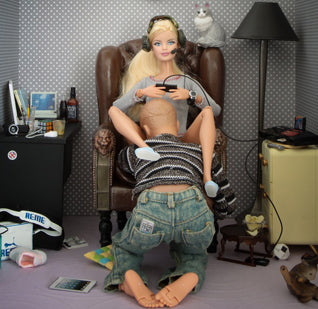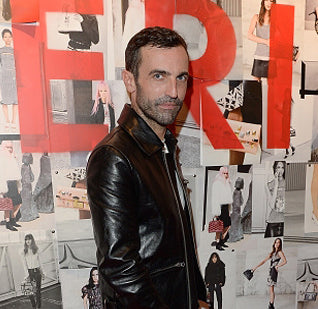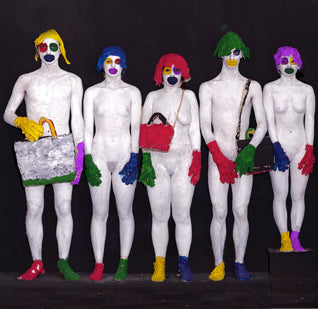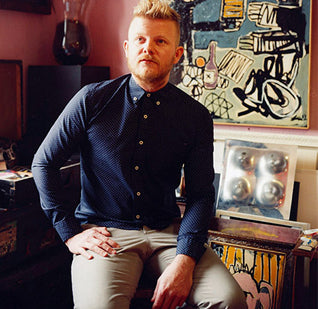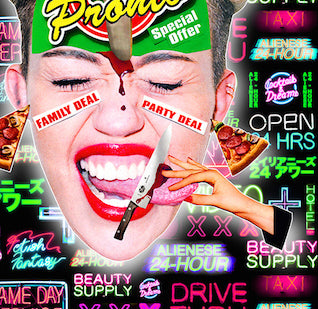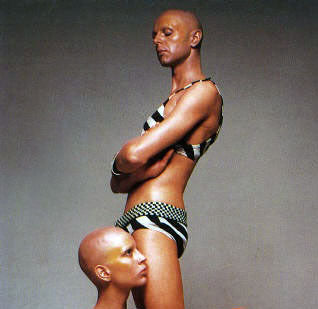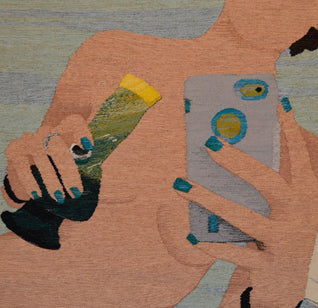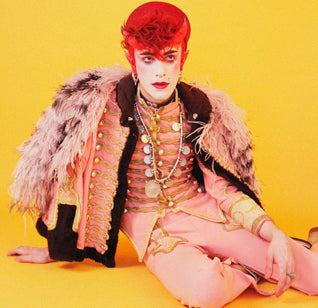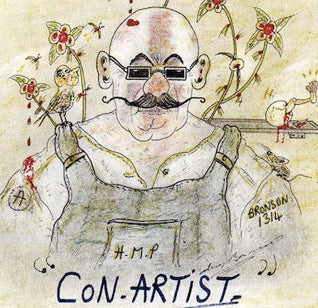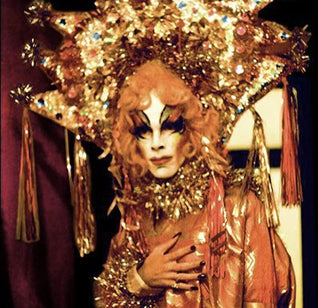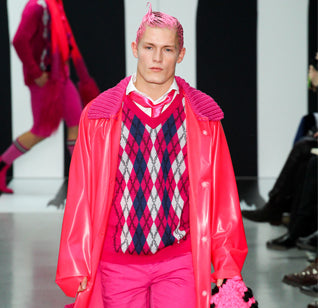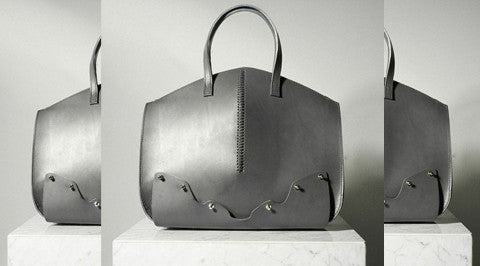THE NAKED TRUTH OF BODY SHAMING
The Last Bastion of Misogyny
by Emma Smith
"Body Shaming". Ah yes, those two all-powerful words that victoriously transcend all boundaries. Nobody is safe from criticism. Even the most secure woman like Lena Dunham can't make herself immune to its pervasive influence. While it is one of the most visible factors in controlling women's behaviour, it continues to be one of the hardest to curb.

Beth Ditto has been criticised for both her rapid weight gain and weight loss while in the public eye.
The increasing volume of a feminist rhetoric is apparent. Destigmatizing the term among young women in popular culture is de rigueur, thanks to poster girls like Beyonce, Lena Dunham and even Miley Cyrus.If Karl Lagerfeld, a man notorious for his fat-shaming ways, who once said Coco Chanel wasn't "ugly enough" to be a feminist, can stage a quasi-Feminist SS15 show, then we know the F word is in vogue. Its current status can only be a good thing, but the voices of spite and misogyny continue largely unchecked, by the press, by women and men alike in everyday life. This continues because we let it, because we don't pull people up over hateful comments and playful jokes that barely disguise genuine disgust. Online trolls exist as part of a culture which accommodates them, because body shaming is an acceptable part of our everyday narrative and to challenge it is to be wilfully contentious. Voices of young, powerful and influential women can help change the course of our attitudes to female physicality and identify the struggle, but ultimately there is a much bigger fight over how we obsessively fetishize the female form.

Evil Karl Illustration by Johnny Ryan
Though there is shame, revulsion and blame towards the fat and less pretty, there is similar taboo about the thin. As a self-identifying thin girl, I speak from personal experience: the thin are blamed for making the fat feel bad, for starving ourselves, for upholding an unrealistic image, for conforming to what the media wants, for being "stick figure silicone Barbie dolls" by the chart sponsored brain rot of Meghan Trainor. But, there is no such thing as the perfect body in the eyes of the media and consequently, with us. Body shaming drives the multibillion dollar cosmetic surgery and diet industries, aimed squarely at the torturous, countless doubts of women. If there's one thing that drives profit, it is our poisonous insecurities.

"Poster Girl" Lena Dunham
Even though we are increasingly aware of the processes, it's difficult to lessen their impact. Though I rally against dieting, I extol the virtue of 'Fat is a Feminist Issue' - the book that genuinely, yet temporarily, fixed my body dysmorphia. For the most part, I love my body, yet I still yearn for change. I have read fashion magazines since I was 14, adored supermodels since forever and cannot deny their influence when I embrace the number on the scales that deems me underweight. I rejoice when my BMI is below advisory levels, delight in a protruding hipbone or when someone comments on my rakishness. A healthy weight is disappointing, when I see the thigh gap in my legs closing up I am defeated. It is ridiculous, unreasonable and yet no less real.

Sophie Dahl's fluctuating weight has been the source of media attention and public speculation since her catwalk debut in 1997
Women are encouraged to compete with one another in an endless, joyless, unspoken battle. 'I woke up like this', 'Basic Bitches', hash tag sponsored idioms are designed to highlight our own perfection, while at the core of it, there is usually deep seated discontent and jealousy, waiting to be momentarily alleviated by an online compliment. Women consume images of other women looking less than perfect, plastered across the brash, mindless stream of weekly rags and embrace them. They do not delight in them, because they do not feel delight, merely validation. Validation that another woman is as fallible and flawed as they. Disgust turns inwards and can lead to further cycles of emotional eating.

Image courtesy of Elite Daily
Victoria's Secret's latest "The Perfect Body" campaign shows a row of waif-like women who fit into the unshakable standards of "perfection"…Victoria's secret is that she's on a pretty fucking tight regime. Meanwhile, high street giants Topshop came under fire for featuring impossibly emaciated mannequins in stores. The difference today, being that where once there may have been a collective shrug in response, the voices of discontent and criticism are now much louder, actively campaigning and able to see right through these hugely damaging agendas.

Lena Dunham sitting naked on a toilet and eating cake during host Jimmy Kimmel’s opening video skit.
If we embrace one another's bodies, end these cycles of loathing and start talking about women without reducing them to dismembered parts open for review, we may begin to move forward. The voices of dissent need to get louder still. We don't need corporations to sell the idea of body liberation back to us, we need to find it for ourselves, with our sisters, with feminism and without shame.










